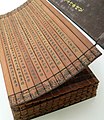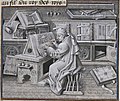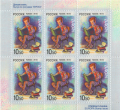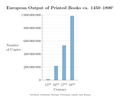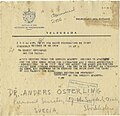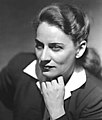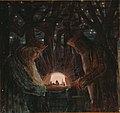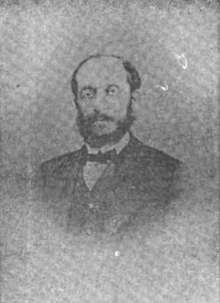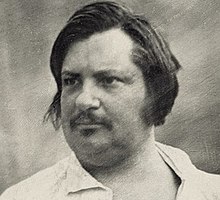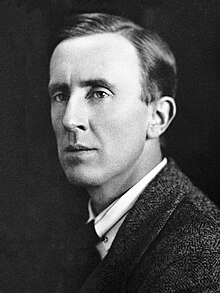Portal:Literature
Introduction

Literature is any collection of written work, but it is also used more narrowly for writings specifically considered to be an art form, especially novels, plays, and poems. It includes both print and digital writing. In recent centuries, the definition has expanded to include oral literature, much of which has been transcribed. Literature is a method of recording, preserving, and transmitting knowledge and entertainment. It can also have a social, psychological, spiritual, or political role.
Literary criticism is one of the oldest academic disciplines, and is concerned with the literary merit or intellectual significance of specific texts. The study of books and other texts as artifacts or traditions is instead encompassed by textual criticism or the history of the book. "Literature", as an art form, is sometimes used synonymously with literary fiction, fiction written with the goal of artistic merit, but can also include works in various non-fiction genres, such as biography, diaries, memoirs, letters, and essays. Within this broader definition, literature includes non-fictional books, articles, or other written information on a particular subject. (Full article...)
General images -
The Man in the Moone is a book by the English divine and Church of England bishop Francis Godwin (1562–1633), describing a "voyage of utopian discovery". Initially considered to be one of his early works, it is now generally thought to have been written in the late 1620s. It was first published posthumously in 1638 under the pseudonym of Domingo Gonsales. The work is notable for its role in what was called the "new astronomy," the branch of astronomy influenced especially by Nicolaus Copernicus, the only astronomer mentioned by name, although the book also draws on the theories of Johannes Kepler, William Gilbert, and Galileo Galilei.
The work tells the story of Gonsales, a Spaniard who discovers a species of wild swan able to carry substantial loads, the gansa, and contrives a device that allows him to harness many of them together and fly around an island, and eventually, to the moon and back.
Some critics consider The Man in the Moone, along with Kepler's Somnium, to be one of the first works of science fiction. Although the book was well known in the 17th century, and even inspired parodies by Cyrano de Bergerac and Aphra Behn, modern literary critics do not consider it to be very important.
Selected excerpt
| “ | The entire world hung for months over this obscure problem—the most obscure, it seems to me, that has ever challenged the perspicacity of our police or taxed the conscience of our judges. The solution of the problem baffled everybody who tried to find it. It was like a dramatic rebus with which old Europe and new America alike became fascinated. That is, in truth—I am permitted to say, because there cannot be any author's vanity in all this, since I do nothing more than transcribe facts on which an exceptional documentation enables me to throw a new light—that is because, in truth, I do not know that, in the domain of reality or imagination, one can discover or recall to mind anything comparable, in its mystery, with the natural mystery of "The Yellow Room." | ” |
| — Gaston Leroux, The Mystery of the Yellow Room | ||
More Did you know
- ... that Wounds of Armenia, the first Armenian novel, was published 10 years after the disappearance of its author Khachatur Abovian?
- ... that James Nelson Barker's play The Indian Princess is largely responsible for the modern version of the Pocahontas story?
- ... that actor Andrew Robinson wrote the novel A Stitch in Time, which is about his character from Star Trek: Deep Space Nine?
- ... that Picasso's poetry has lines like "my grandmother's big balls are shining midst the thistles" and that one of his works depicts Franco as a jackbooted phallus?
- ... that the novel Passing by Nella Larsen, with its focus on "jealousy, psychological ambiguity and intrigue" has been described as a "skillfully executed and enduring work of art"?
Selected illustration
Did you know (auto-generated) -

- ... that campaign literature in the 1894 Montana capital referendum accused Helena residents of copious Manhattan consumption?
- ... that Manuel Carpio's 1849 poem is the earliest literary depiction of the weeping ghost La Llorona?
- ... that Edo literature was influenced by British colonialism in the late 19th century, which introduced the Roman script and Christianity to the Edo people?
- ... that the North-Western Regional Committee of the Russian Communist Party (Bolsheviks) ran an underground network to distribute literature to German soldiers in occupied areas?
- ... that Cathie Dunsford was unable to find many books about lesbianism in the 1970s, but by the 1980s had herself become a writer and anthologist of lesbian literature?
- ... that literary critic Leslie Fiedler called the novel Band of Angels "operatic in the worst sense of the word"?
Today in literature
- 1493 - Bernardo Tasso, Italian poet born
- 1623 - Philippe de Mornay, French writer died
- 1834 - Hans Christian Andersen's The Ugly Duckling was first published.
- 1764 - Barbara Juliana, Baroness von Krüdener, Russian writer born
- 1821 - Fyodor Dostoevsky, Russian novelist born
- 1836 - Thomas Bailey Aldrich, American poet and novelist born
- 1901 - F. Van Wyck Mason, American author born
- 1914 - Howard Fast, American author born
- 1919 - Kalle Päätalo, Finnish novelist born
- 1922 - Kurt Vonnegut, Jr., American novelist born
- 1928 - Carlos Fuentes, Mexican writer born
- 1929 - Hans Magnus Enzensberger, German writer born
- 1950 - Mircea Dinescu, Romanian poet born
- 1954 - Mary Gaitskill, American author born
- 1970 - Lee Battersby, Australian author born
- 1999 - Jacobo Timmerman, Argentine writer and journalist died
Topics
| Literature: | History of literature · History of the book · Literary criticism · Literary theory · Publishing |
| By genre: | Biography · Comedy · Drama · Epic · Erotic · Fable · Fantasy · Historical fiction · Horror · Mystery · Narrative nonfiction · Nonsense · Lyric · Mythopoeia · Poetry · Romance · Satire · Science fiction · Tragedy · Tragicomedy · more... |
| By region: | African literature · Asian · European · Latin American · North American · Oceanic |
| By era: | Ancient literature · Early medieval · Medieval · Renaissance · Early Modern · Modern |
| By century: | 10th century in literature · 11th · 12th · 13th · 14th · 15th · 16th · 17th · 18th · 19th · 20th · 21st |
| Recent: | 2018 in literature· 2017 · 2016 · 2015 · 2014 · 2013 · 2012 · 2011 · 2010 · 2009 · 2008 · 2007 · more... |
Categories
Related portals
| Concepts: | |
| Genres: | |
| Religions: |
Things you can do
Related WikiProjects
WikiProjects related to literature:
| Concepts: | Biographies · Books · Comics · Magazines · Manga · Novels · Poetry · Short stories · Translation studies |
| Genres: | Alternate history · Children's literature · Crime · Fantasy · Horror · Mythology · Romance · Science fiction |
| Authors: | Honoré de Balzac · Roald Dahl · William Shakespeare |
| Series: | Artemis Fowl · Chronicles of Narnia · Discworld · Harry Potter · His Dark Materials · Hitchhiker's Guide to the Galaxy · Inheritance Cycle · James Bond · King Arthur · Middle-earth · Percy Jackson · Redwall · A Series of Unfortunate Events · Shannara · Sherlock Holmes · A Song of Ice and Fire · Star Wars · Sword of Truth · Twilight · Warriors · Water Margin · Wizard of Oz |
| Regions: | Australian literature · Indian literature · Persian literature |
Associated Wikimedia
The following Wikimedia Foundation sister projects provide more on this subject:
-
Commons
Free media repository -
Wikibooks
Free textbooks and manuals -
Wikidata
Free knowledge base -
Wikinews
Free-content news -
Wikiquote
Collection of quotations -
Wikisource
Free-content library -
Wikiversity
Free learning tools -
Wiktionary
Dictionary and thesaurus









